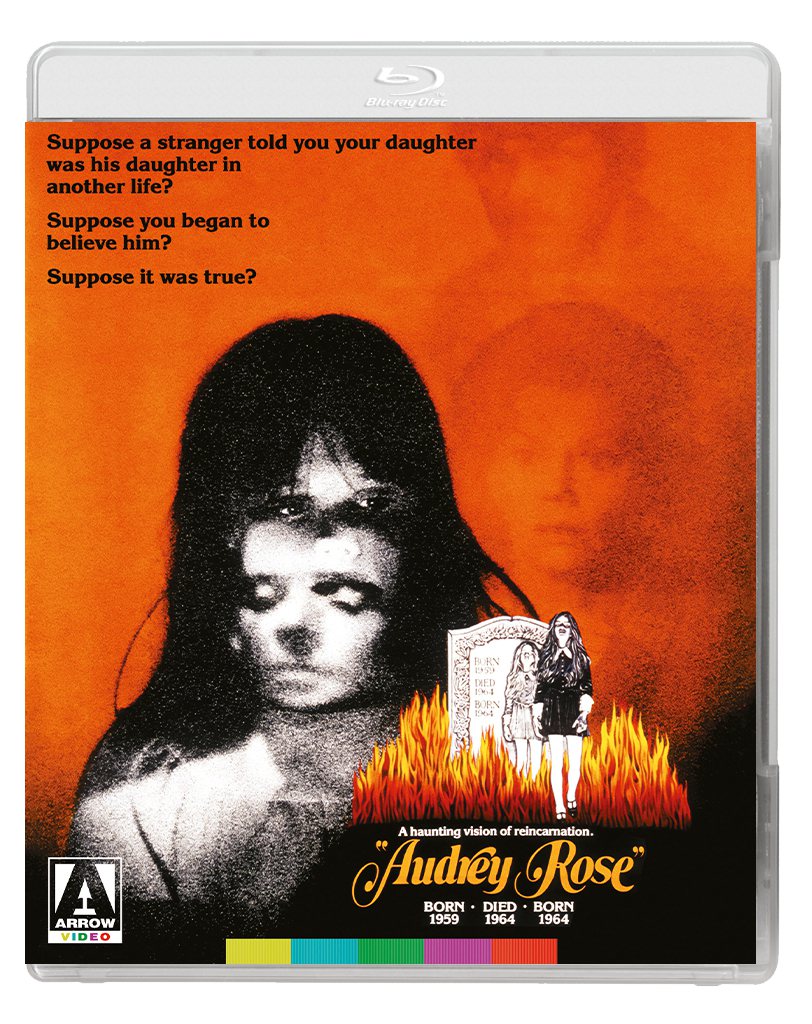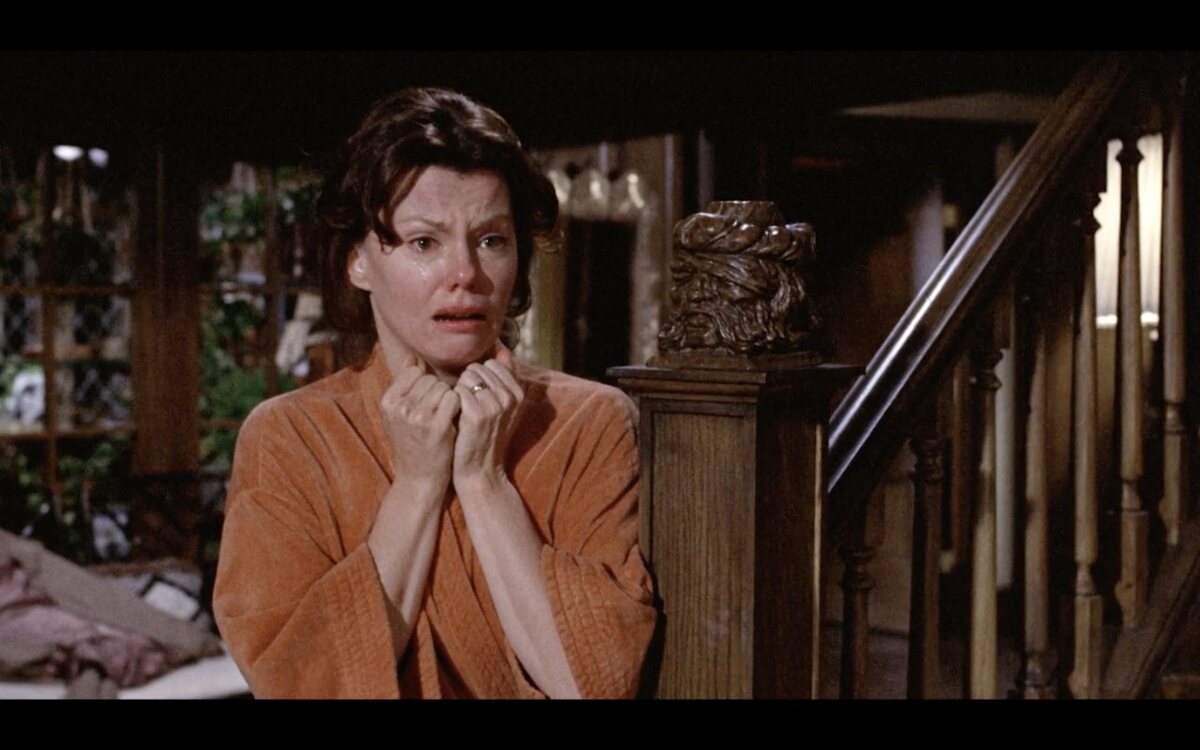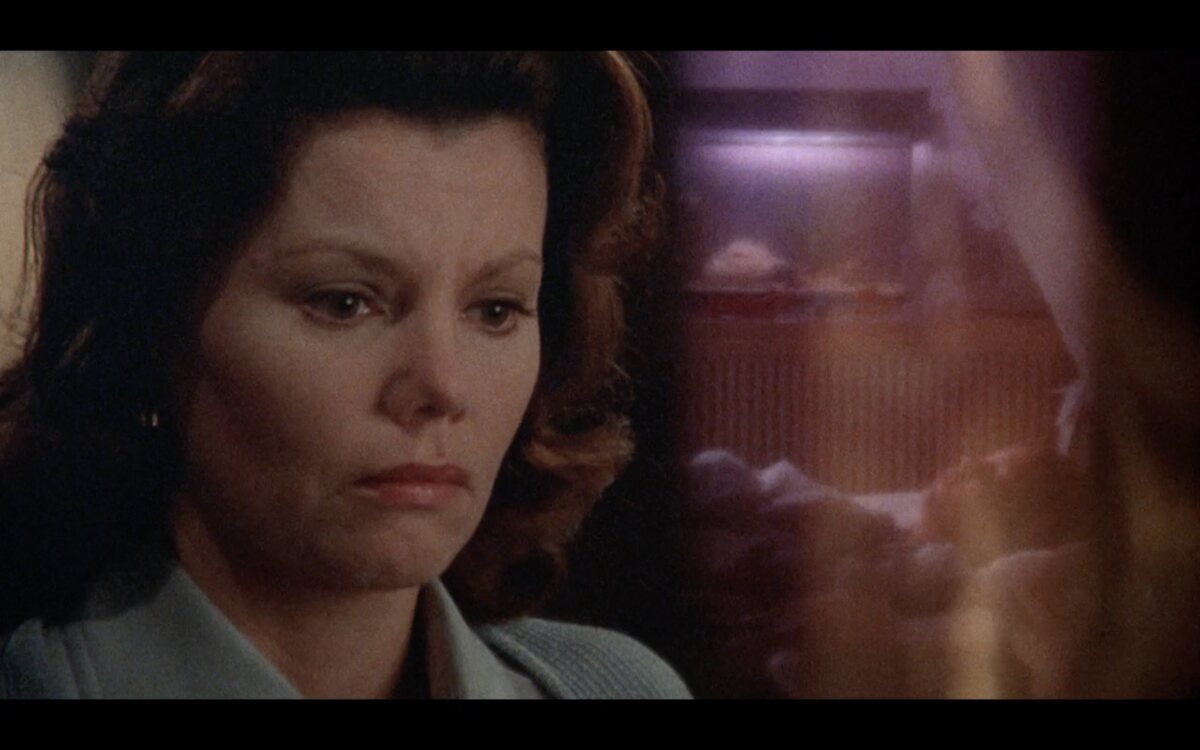
Audrey Rose (1977)
directed by Robert Wise
starring Marsha Mason, Anthony Hopkins
Arrow Video
The rise of “New Hollywood” from the late 1960s through the entire decade of the 1970s created great director-driven film projects that, freed from the strict dictates of the studio system, also allowed for more naturalistic acting and less conventionally beautiful actors. The everyman actors of this period like Walter Matthau, James Caan, John Cazale, and Gene Hackman are legendary, but far too often the women who worked in less glamorous roles are less well regarded. One of the best of her generation, witnessed by her four Oscar nominations, is Marsha Mason, who has sadly become an afterthought in any discussion of the best actresses of the decade. Still, her work is incredibly potent, and in the case of Robert Wise’s 1977 thriller Audrey Rose, she is far and away the best thing in the film.

Ivy Templeton leads an idyllic life in the upper middle class confines of Central Park West with her mother, Janice (Marsha Mason, The Goodbye Girl) and father Bill (John Beck, Rollerball). During the family’s daily routines, Janice starts to notice a strange man, Elliott Hoover (Anthony Hopkins, Magic), appearing wherever they go including at Ivy’s school. Everyone tries to convince Janice that it is just a coincidence. As Ivy’s birthday nears, she is beset by uncontrollable night terrors and Hoover continues to stalk Janice and Ivy. When she confronts him, Hoover asks her and her husband to meet him to talk. They reluctantly agree, and sitting in a bar on the Upper West Side Hoover attempts to convince the Templetons that their daughter Audrey Rose is the reincarnation of his daughter Ivy who died in a fiery car crash just minutes before Audrey Templeton was born. Of course he is dismissed, but Bill’s lawyer sets up a meeting at the family’s apartment to try to entrap Hoover into saying or doing something actionable. The meeting is uneventful until Audrey Rose has one of her nightmares she can’t awaken from and can only be comforted by Elliott. Hoover doggedly pursues opportunities to be with Audrey and an increasingly exhausted and vulnerable Janice lets him in as she realizes she doesn’t believe in reincarnation but recognizes Hoover is the only person who can soothe her. Tensions between Janice, her husband, and Elliott escalate until Hoover takes Audrey Rose to a studio he leased in the Templetons’ building and is arrested for kidnapping.

The film up to this point is excellent, with a surprisingly restrained performance from Anthony Hopkins (though I don’t for a second believe he’s from Pittsburgh) and a powerful performance from Marsha Mason, who nails the brutal hopelessness and desperation of a parent who realizes that they can no longer reach their own child. She has a long scene where she emotionally surrenders, and her ugly crying face as she grapples with the reality of her situation is heart wrenching and deserving of a better film. Mason’s histrionics are complemented by the gentleness of Anthony Hopkins’ performance. The script gives him ample room to chew the scenery, but he keeps things low key, making it all the more believable that a mother would let him into her life to comfort her troubled child. After Hoover is arrested, the film sidelines Mason to focus the third act on a dull and preposterous criminal trial, where Hoover attempts to defend himself by convincing a jury that reincarnation is real, with tragic (and unintentionally comic) results.
Frank De Felitta’s horror novel Audrey Rose appeared on the New York Times Best Seller list in March of 1976. Thirteen months later the film adaptation, helmed by legendary director Robert Wise with a screenplay from De Felitta, debuted in cinemas. The book sold millions of copies, and the the movie was part of a string of prestige horror films that were green lit in the wake of The Exorcist in 1973. Horror films with A-list stars and glossy productions stood in stark contrast to drive-in fare like The Texas Chain Saw Massacre and were geared toward adults in the suburbs. Audrey Rose was expected to take its place alongside Don’t Look Now (1973), Jaws (1975), and The Omen (1976), but the tale of reincarnation thudded at the box office and was quickly forgotten, as Star Wars (1977) was released a few weeks later. The film garnered mediocre reviews and the word of mouth couldn’t have helped either. The last act is a bore and the rest of the film has great performances but is so stagebound, with all the important action taking place in the Templetons’ apartment, that it could easily have been a stage play or a really great made-for-TV movie. The last of any actual scary moments had to be a letdown for audiences who had just recently witnessed the Oscar caliber mayhem of Carrie and The Omen.

A new Blu-ray from Arrow Video is giving Audrey Rose a second chance at life. The film was a familiar friend on cable television and probably is remembered more fondly by those who saw it on the small screen, where it probably works better than it did theatrically. The cinematography by workhorse Victor J. Kemper, who also shot Pee Wee’s Big Adventure, Dog Day Afternoon, and Xanadu, is purposely very soft and grainy, which is preserved on this disc but can be a bit jarring to those who expect films to always be razor sharp and crystal clear. The softness helps convey the love and comfort of the Templeton home that is shattered by the conflict inside their daughter that tears the family apart. The film probably would have benefitted from an independent screenwriter, as De Felitta is too anchored to the beats of the novel. Even with the film’s issues, it is certainly worth watching to see a pair of great actors at work with an old Hollywood director evolving at the end of his career to work with very different kinds of actors than he began his career with at RKO in the 1940s.












